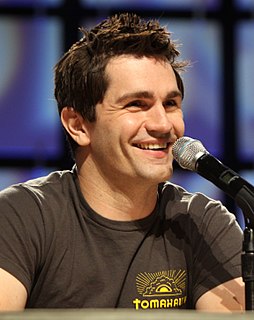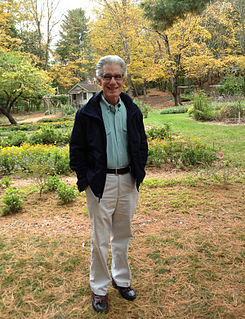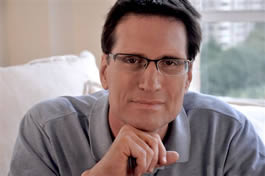A Quote by Joseph Addison
The transition from cause to effect, from event to event, is often carried on by secret steps, which our foresight cannot divine, and our sagacity is unable to trace.
Related Quotes
There is not any present moment that is unconnected with some future one. The life of every man is a continued chain of incidents, each link of which hangs upon the former. The transition from cause to effect, from event to event, is often carried on by secret steps, which our foresight cannot divine, and our sagacity is unable to trace. Evil may at some future period bring forth good; and good may bring forth evil, both equally unexpected.
Happiness does not come quickly. It is not conferred by any single event, however exciting or comforting or satisfying the event may be. It cannot be purchased, whatever the allure of the next, the newest, the brightest, the best. Happiness, like Carl Sandburg's fog, "comes on little cat feet," often silently, often without our knowing it, too often without our noticing.
This is not remarkable, for, as we know, reality is not a function of the event as event, but of the relationship of that event to past, and future, events. We seem here to have a paradox: that the reality of an event, which is not real in itself, arises from the other events which, likewise, in themselves are not real. But this only affirms what we must affirm: that direction is all. And only as we realize this do we live, for our own identity is dependent upon this principal.
There is nothing in the nature of a miracle that should render it incredible:;: its credibility depends upon the nature of the evidence by which it is supported. An event of extreme probability will not necessarily command our belief unless upon a sufficiency of proof; and so an event which we may regard as highly improbable may command our belief if it is sustained by sufficient evidence. So that the credibility or incredibility of an event does not rest upon the nature of the event itself, but depends upon the nature and sufficiency of the proof which sustains it.
Surely the memory of an event cannot pass for the event itself. Nor can the anticipation. There is something exceptional, unique, about the present event, which the previous, or the coming do not have. There is livingness about it, an actuality; it stands out as if illumined. There is the "stamp of reality" on the actual, which the past and future do not have.
Our thoughts about an event can have a dramatic effect on how we go through the event itself. When our expectations are low, it's easy to be pleasantly surprised. When they're not, we're vulnerable to painful disappointment. Because of this, many people spend a good deal of effort trying to avoid developing high hopes about anything.
When something goes wrong in our lives we often ask ourselves "Who was present?" and if there was ever a singular person that was present in whatever the event was when something changed our lives. If we can't get beyond that event, we become obsessed with it or it changed our life in a way that we can't make sense of. We often seek out that person because that was the last time our lives made sense.
If an event can be produced by a number n of different causes, the probabilities of the existence of these causes, given the event (prises de l'événement), are to each other as the probabilities of the event, given the causes: and the probability of each cause is equal to the probability of the event, given that cause, divided by the sum of all the probabilities of the event, given each of the causes.
But because me and myself, as you no doubt are well aware, we are going to die, my relation—and yours too—to the event of this text, which otherwise never quite makes it, our relation is that of a structurally posthumous necessity. Suppose, in that case, that I am not alone in my claim to know the idiomatic code (whose notion itself is already contradictory) of this event. What if somewhere, here or there, there are shares in this non-secret’s secret? Even so the scene would not be changed. The accomplices, as you are once again well aware, are also bound to die.
You have to understand that PTSD has to be an event that you experience, a very traumatic event. And actually, there is evidence that brain chemistry changes during this event in certain individuals where it's imprinted indelibly forever and there's an emotion associated with this which triggers the condition.





































